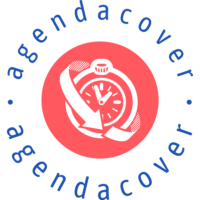This article explores the elusive concept of work-life balance in the consulting industry. It delves into the challenges consultants face, the strategies they employ, and the mindset they cultivate to achieve equilibrium. Whether you’re a seasoned consultant or just beginning your journey, you’ll find insightful tips and advice to help navigate your professional and personal life.
So, let’s dive into the world of consulting work life balance, where high stakes meet high rewards, and discover how to strike a balance that works for you.
Consulting Work Life Balance
 Consulting often requires long hours, sometimes burning the midnight oil becomes standard. An integral part of maintaining a level-headed approach, it’s a delicate act of adjusting professional responsibilities and personal commitments. Consultants may follow strategies such as time management, setting boundaries, or even prioritizing tasks to retain equilibrium. Striking this balance doesn’t come easy, where the pressures of delivering high-quality solutions and navigating dynamic client expectations are ongoing.
Consulting often requires long hours, sometimes burning the midnight oil becomes standard. An integral part of maintaining a level-headed approach, it’s a delicate act of adjusting professional responsibilities and personal commitments. Consultants may follow strategies such as time management, setting boundaries, or even prioritizing tasks to retain equilibrium. Striking this balance doesn’t come easy, where the pressures of delivering high-quality solutions and navigating dynamic client expectations are ongoing.
Remember, achieving this balance is not an end goal but a continuous process that calls for conscious efforts and regular adjustments. Sensible consulting work-life balance practices foster productivity and long-term career success without dampening the personal spirit. Despite being challenging, consulting’s flexible and dynamic nature often provides opportunity to structure personal workflow, allowing room for work-life balance. These practices give consultants a better chance of reaching a satisfying balance between their professional and personal lives. By making sensible adjustments and having a steadfast approach, consultants may lead a fulfilling life on and off work.
Assessing the Impact of Work Load
 High workloads often impact a consultant’s ability to strike a perfect work-life balance, potentially causing stress and burnout. Evaluating the impact commences with measuring weekly hours spent on work tasks, including overtime. For instance, a consultant spending over 50 hours a week on work-related activities signifies a heavy workload. Comparing this with industry standards provides a clearer understanding of the impact. Moreover, effectually assessing the mental strain imposed by workload, may involve gauging the consultant’s wellness utilizing validated psychological tools. Such assessment aids in identifying necessary changes, promoting healthier work-life boundaries, thus fortifying a consultant’s ability to cultivate a balanced lifestyle.
High workloads often impact a consultant’s ability to strike a perfect work-life balance, potentially causing stress and burnout. Evaluating the impact commences with measuring weekly hours spent on work tasks, including overtime. For instance, a consultant spending over 50 hours a week on work-related activities signifies a heavy workload. Comparing this with industry standards provides a clearer understanding of the impact. Moreover, effectually assessing the mental strain imposed by workload, may involve gauging the consultant’s wellness utilizing validated psychological tools. Such assessment aids in identifying necessary changes, promoting healthier work-life boundaries, thus fortifying a consultant’s ability to cultivate a balanced lifestyle.
Strategies for Achieving Balance
Maintaining harmony requires strategizing, a key component in a consultant’s work-life balance toolbox. In this context, strategies may include leveraging technology, mindfully delegating, and bolstering emotional resilience. By adopting such strategies, consultants can effectively sustain equilibrium amidst heavy workloads and high client expectations.
Tools and Resources to Aid Work Life Balance
 Tools and resources present a vital role in promoting work-life balance for consultants. They streamline tasks, foster efficiency, mitigate stress, and ensure the fulfillment of both professional and personal responsibilities. From digital applications that enhance productivity to wellness programs fostering physical and mental health, these supports alleviate the pressures of consulting work. Hence, integrating such instruments into daily routines becomes an effective step towards a balanced lifestyle. It begins with identifying the right tools, implementing them, and constructing a system that caters to the consultant’s specific needs and preferences. Let’s explore some notable tools and resources that can significantly promote consulting work-life balance in the industry.
Tools and resources present a vital role in promoting work-life balance for consultants. They streamline tasks, foster efficiency, mitigate stress, and ensure the fulfillment of both professional and personal responsibilities. From digital applications that enhance productivity to wellness programs fostering physical and mental health, these supports alleviate the pressures of consulting work. Hence, integrating such instruments into daily routines becomes an effective step towards a balanced lifestyle. It begins with identifying the right tools, implementing them, and constructing a system that caters to the consultant’s specific needs and preferences. Let’s explore some notable tools and resources that can significantly promote consulting work-life balance in the industry.
Diving Into Consulting Work Life Balance
Achieving consulting work-life balance in the industry isn’t a myth but a reality that can be attained with the right strategies. It’s about managing time effectively, setting boundaries, and using technology to streamline tasks. Consultants can thrive on high workloads without compromising their well-being by enhancing emotional resilience and leveraging tools and resources. Case studies have shown that integrating these tools into daily routines is a significant step towards a balanced lifestyle. Remember, it’s not just about surviving the high-pressure environment but thriving in it. The road to work-life balance may be challenging, but with the right approach, it’s definitely achievable for every consultant out there.



